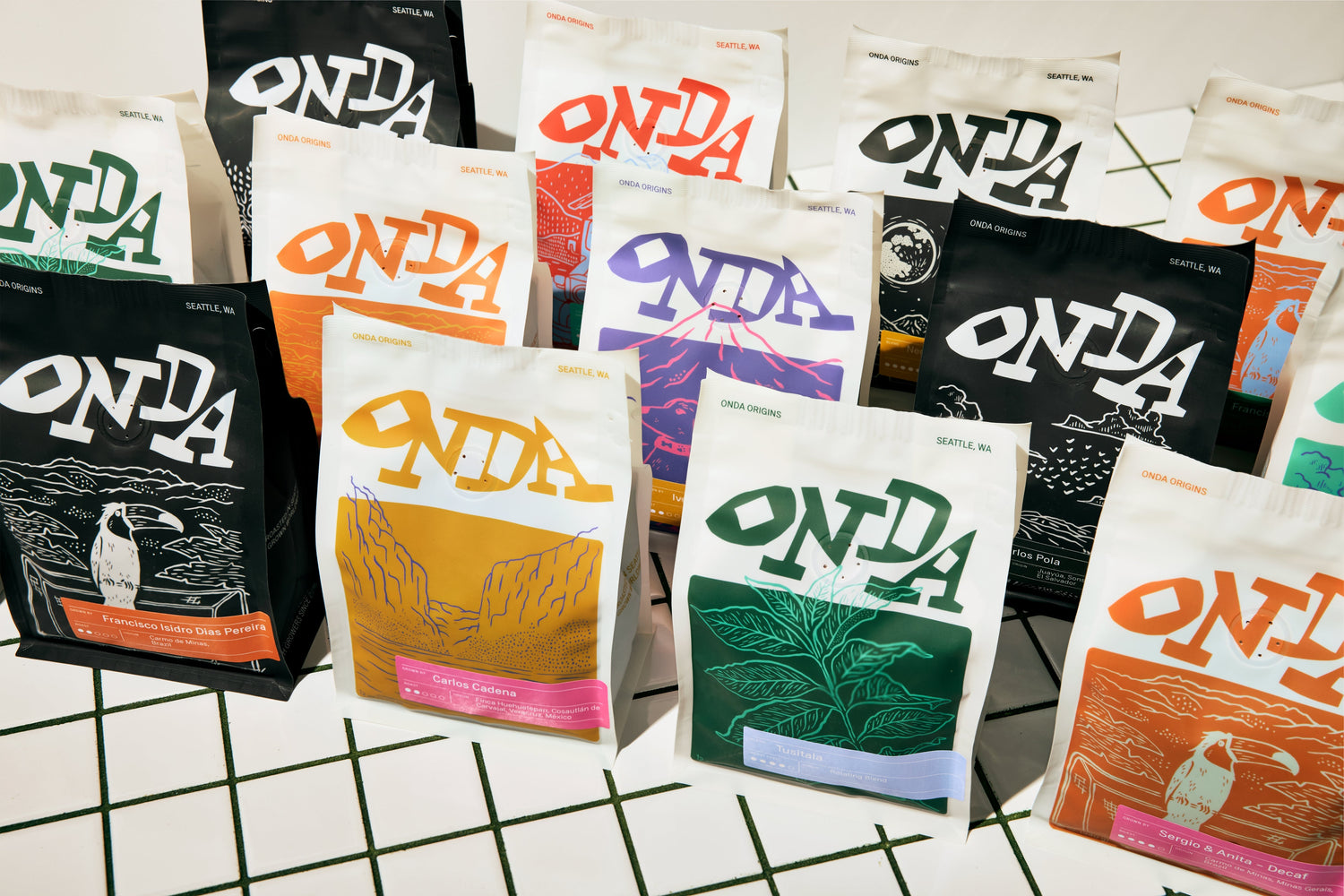3 reasons why Kiko’s coffee is some of the world’s best
Brazil is known for coffee—just not good coffee. Here’s how one of our coffee growing partners wants to change that.
30% of the world’s coffee comes from Brazil. However, in consumer markets, it’s largely seen as filler—a mass-produced, commodity product. And in the third wave coffee movement, this perception has plagued Brazilian specialty coffee growers.
Francisco "Kiko" Ribeiro wants to change that. A former futebol talent turned passionate coffee farmer, he set out with his collective to grow some of the best coffee in the world. Here are three reasons why he may have done it.

1. The Natural Land
To find Kiko’s coffee farm you’ll need to travel to Carmo de Minas, a municipality of the Minas Gerais state 4+ hours northeast of São Paolo. To coffee lovers, the name might ring a bell. The micro-region at the base of the Mantiqueira mountains is known for its fertile, volcanic soils, high altitude (1200m), and plentiful sunlight. Pretty much the perfect conditions to grow good coffee.
It’s in this ideal landscape that Kiko holds a unique part of it, nestled between 40 hectares of virgin Mata Atlantica forest and the ruins of the first Portuguese settlement in the region. Kiko’s land is in the shadow of the valley in a sunbathed region—and you can taste it in the coffee.

2. Sustainable Farming Practices
In 2001, the Cocarive Cooperative banded together to invest in a top-of-the-line sorting and warehousing facility. This allowed the farmers to better pick, replant, and dry their arabica beans at times best for the soil.
The coffee farmers of Carmo de Minas see their land as their livelihood and strive to not overuse it. The priority has always been the health and sustainability of their environment—a stark contrast to the slash-and-burn agriculture Brazil is largely known for.
Kiko is no different. In fact, he uses mules instead of machinery, which is gentler on his land. By producing high-quality microlots that grow some of the best coffee in the world, he also protects his land from deforestation. Today, he is working on converting his farm to 100% solar power to further decrease his carbon footprint.

3. Quality Through Revenue Sharing
The price of coffee paid to coffee farmers is the same as it was in the 1980's, while the average price for a cup of coffee has increased by 500%.
If, in the third wave of coffee, consumers are demanding higher-quality specialty coffee, where’s that money going?
By getting ourselves directly involved in the supply chain, we’re not only ensuring better coffee, but also a fairer distribution of the profits to the people responsible for the coffee’s quality.
This empowers farmers like Kiko. At the co-op, they get final call on the price of their crop. They don’t have to live on razor-thin margins and be forced to cut down forests or strip their land to get by. Plus, we share an additional $1 with every grower from every lb we roast and sell.



